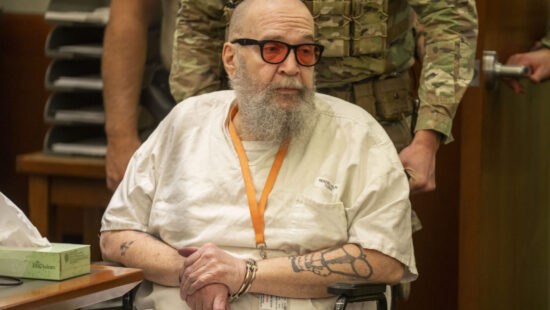Politics
Utah’s GOP-led death penalty repeal measure falls vote short

The Utah State Capitol building in Salt Lake City. Photo: TownLift // Bailey Edelstein
SALT LAKE CITY — A push to repeal the death penalty in Utah has been narrowly rejected, but an emotional hearing this week laid bare divisions among conservatives that have taken shape in Republican-led statehouses.
In Utah, which became the first state to execute someone after the U.S. Supreme Court lifted its moratorium in 1976, lawmakers on Monday evening rejected a Republican-sponsored measure that would have maintained the state’s death row but prohibited prosecutors from pursuing capital punishment in the future.
The proposal fell one vote short of clearing a criminal justice-focused House committee, with five in favor and six opposed.
The discussion covered familiar, decades-old arguments about the nature of justice, wrongful convictions and costs. But this time, opponents argued the death penalty can also add pain and suffering for families of victims. They said the lengthy appeals process prolonged the harm inflicted on victims’ relatives. By making victim impact a focal point of the repeal push, they blurred what traditionally has been among supporters’ chief arguments: that the death penalty brings justice to victims of heinous crimes and their families.
While a number of those families support capital punishment, Sharon Wright Weeks is among those who have come to feel that the death penalty has made it harder to gain closure. Her sister and 15-month-old niece were killed in a crime chronicled in the book “Under the Banner of Heaven.” She was initially supportive of a death sentence for one of the men responsible, but nearly four decades of appeals, retrials and competency hearings changed her mind.
“It’s never-ending. It’s like carrying around this huge weight that just gets heavier and heavier and heavier,” she told The Associated Press.
Brenda Lafferty, Weeks’ sister, was murdered in 1984 along with her daughter Erica, by two of her brothers-in-law, Ron and Dan Lafferty. Dan got life in prison. Ron was sentenced to death, but before being executed died in prison of natural causes.
Weeks’ story convinced Utah Republican Rep, Lowry Snow to sponsor the repeal proposal.
Recent death penalty repeals have only passed in Democratic-controlled states. But Snow framed his push as part of a growing movement of Republican lawmakers in red states who, like him, are taking on leading roles in the push to abolish the practice.
Of the 24 states with active death penalty statutes, repeal measures were introduced in at least five Republican-majority legislatures last year: Wyoming, Ohio, Kansas, Georgia and Kentucky. A repeal has yet to pass in any Republican-led state, but in Ohio last year, Republicans passed a law prohibiting the execution of people who had severe mental illness at the time of their crime.
A death-penalty repeal bill also advanced in Utah in 2016, the year after the state revived the firing squad as a backup method for executions if lethal drugs are unavailable.
For many, the conservative case against the death penalty presents similarities to arguments against abortion. “It advocates for the totality of life,” said Demetrius Minor with the group Conservatives Concerned About the Death Penalty.
Republicans like Snow have also pointed to wrongful convictions to suggest giving the state power to take life conflicts with their small government principles. They have argued the death penalty’s high price tag makes it fiscally irresponsible in some states, including Utah, where a 2018 state report found the state had spent $40 million prosecuting dozens of death penalty cases, just two of which ended in a death sentence.
“We have almost nothing to show for that,” Snow said. “How much better would be to redirect that to helping the victims and the victims’ families?”
Weeks, a self-described political moderate, doesn’t oppose the concept of ending a killer’s life. But while the brother sentenced to life, Dan Lafferty, has largely faded into the background of her life, the death sentence forced her to spend the majority of her adult life in a painful process without resolution.
“I do not want anybody else to have to go through that again,” she said.
Other victims’ family members said Monday that the heinous killings that took their loved ones from them merited the punishment. Lawmakers heard testimony from relatives of a woman who was stabbed repeatedly before being shot in the head; of murder victims whose corpses were dropped down a mine shaft; and of multiple women who had their throats slashed.
Andrew Peterson, the Utah Attorney General’s capital case coordinator, said the death penalty allowed prosecutors to satisfy “the covenant society has made with victims to seek proportional justice to honor a victim’s life and dignity.”
Taking the death penalty off the table, victims’ relatives said, would strip prosecutors of a critical plea bargaining tool they use to secure life without parole in aggravated murder cases.
Family members of Lizzy Shelley, a child who was raped and murdered in 2019 said the threat of the death penalty led Alexander William Whipple, the girl’s uncle, to tell law enforcement where the body could be found, sparing the family of the agony of not knowing her fate.
“There are, in my belief some people that have done such heinous crimes that I think the only way that the crime can be paid back is with their own life,” said Norman Black, Shelley’s grandfather.
Rep. Jefferson Burton said it made more sense to first seek to fix the problems with the death penalty, including cost, wrongful convictions and prolonged appeals, rather than to repeal it and rid government of a tool that prosecutors and many others believe makes society safer and more just.


















